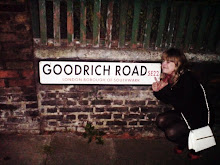


David Harrower’s take on Arthur Schnitzler’s play ‘Liebelei’ of sexual longing, deception and dream-like Viennese decadence was not to everyone’s taste at the Saturday night performance at the Young Vic. The rough handling of the young actresses on stage in the first scene compelled some members of the audience to leave within the first ten minutes of the play’s beginning, wincing profusely. But it is necessary to approach Schnitzler, and in turn Harrower with some expectation of flagrant infidelity, male domination and explicit eroticism. ‘Eyes Wide Shut’, an earlier Harrower adaptation of Schnitzler’s ‘Dream Story’ revealed stoned confession scenes, fathers prostituting their daughters and mass orgy parties, so male aggression was no shocking revelation in ‘Sweet Nothings’. "I write of love and death. What other subjects are there?" Arthur Schnitzler claimed, yet what can be read from the play in terms of social and gender commentary is also particularly intriguing, especially with the author’s backdrop of Austrian self-indulgence, abundant with music and theatre. A young bourgeoisie man has an affair with a married woman but her husband uncovers their love letters. Alongside this, the same youth is entertaining a naively besotted girl barely out of her teens and the scenes unravel towards a duel and finally death, a painfully negative yet accurate conclusion of life for young people in early twentieth century Vienna where aristocratic sons are expected to experience life through the number of notches they carve into their Josef Hoffmann bedposts while women were doomed to be spinsters or whores if they were not married beyond the age of twenty. ‘Sweet Nothings’ concentrates on the psychology of intimacy and the audience is left with a sense of frivolity tinged with regret, as the hysterical young woman is restrained in her sanatorium-esque bedroom by her former lover’s comrade in the military and her overprotective father. Grim, yet extremely compelling.

















No comments:
Post a Comment